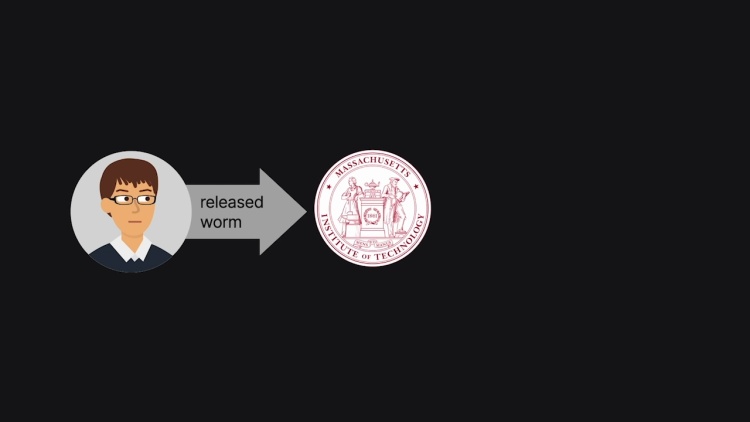United States v. Morris
United States Court of Appeals for the Second Circuit
928 F.2d 504 (1991)

- Written by Eric Cervone, LLM
Facts
Robert Morris (defendant) was a Cornell University (Cornell) graduate student. When Morris entered Cornell, he was given an account that granted him explicit authorization to use computers at Cornell. While at Cornell, Morris created a computer virus to demonstrate the inadequacies of the current computer-network security measures. Morris released the virus onto the Internet. The release was done from a computer at the Massachusetts Institute of Technology to disguise the fact that the worm came from Morris at Cornell. The virus spread at a much faster rate than Morris had anticipated. The virus crashed numerous computers across the country. Morris attempted to send an anonymous message over the Internet detailing how to kill the virus, but the message did not get through because the network had become so clogged. The United States government prosecuted Morris for violating the Computer Fraud and Abuse Act by accessing a federal-interest computer without authorization. The computers at Cornell to which Morris had access were considered federal-interest computers, as were many of the computers that were infected by Morris’s virus. Morris contended that his conduct only exceeded authorized access, and it was not altogether unauthorized. The lower court found in favor of the government. Morris appealed.
Rule of Law
Issue
Holding and Reasoning (Newman, J.)
What to do next…
Here's why 904,000 law students have relied on our case briefs:
- Written by law professors and practitioners, not other law students. 47,100 briefs, keyed to 995 casebooks. Top-notch customer support.
- The right amount of information, includes the facts, issues, rule of law, holding and reasoning, and any concurrences and dissents.
- Access in your classes, works on your mobile and tablet. Massive library of related video lessons and high quality multiple-choice questions.
- Easy to use, uniform format for every case brief. Written in plain English, not in legalese. Our briefs summarize and simplify; they don’t just repeat the court’s language.





